ARE YOU SURPRISED! 12.9” M1 iPad Pro vs Galaxy Tab S7+ By Tech Gear Talk
- A few months ago, I compared the 2020 iPad Pro to the Galaxy Tab S7+. And a lot of you have asked me to do an update with the M1 iPad Pro. So, is this even a contest? Can a Tab S7+ hold its own? And which tablet is better for you? The answer might surprise you. So, let's talk about these two great tablets, cover their features, and see how well they do for multitasking, content consumption, gaming, video calls, and general office type work. The M1 iPad Pro and the Tab S7+ are flagship models. So, we're getting the best at Apple and Samsung have to offer.
The larger M1 iPad Pro has a beautiful 12.9 inch mini led display, while the Galaxy Tab S7+ has a spectacular 12.4 inch super AMOLED display. The two tablets have a drastically different aspect ratio, with the iPad Pro being more squared off and the Tab S7+ sporting a more elongated design. When you handle both tablets, the iPad Pro definitely feels a lot bigger because, even though it's a little bit shorter, it's a lot wider. And, of course, there's a lot more real estate to work with. If you're watching content, it doesn't really matter, because most of the content that we watch like this is 16 by nine.
So, we're just getting bigger, black bars on the iPad Pro. But when it comes to productivity and creative work, you're able to see a lot more text, you have a larger area for note-taking, larger canvas for artwork, and more real estate to work with in photo and video editing apps. When it comes to portability, the Tab S7+ is both smaller and lighter. So, in terms of size, you'll need to choose between the larger tablet and the more portable option. Now, aesthetically, things are pretty much exactly as they were with last year's iPad Pro.
And both tablets are very similar. We've got a solid machined, aluminum construction. Both are sleek and thin. Although, the 12.9 inch iPad Pro is about 1/2 a millimeter thicker than last year's model because of the new display. Looking at the tablets, we see small bezels, rounded corners, squared off edges, and a matte finish.
Now, both have a USB-C port, and the Tab S7+ has a USB-C 3.2 Gen 2 port, with transfer speeds of up to 10 gigabits per second. And the iPad Pro received a Thunderbolt/USB4 port upgrade with four times faster transfer speeds of up to 40 gigabits per second. For the majority of users, this isn't gonna be a significant change, but if you're transferring a lot of data to and from your tablet, like maybe large photo and video files, this is a nice feature. But the faster port will also allow for connectivity with more demanding accessories like the Pro Display XDR at 6K resolution. Then continuing around the edges, we've got power buttons, volume controls, and four speaker grills.
An added feature on Samsung's Tab S7+ is the micro SD card slot, which allows you to, inexpensively, expand the internal storage by an additional one terabyte. Now, flipping the tablets over, we see the iPad Pro has a larger square camera module, which includes two cameras, a flash, a microphone, and the LIDAR scanner. And the Tab S7+ features an elongated design with two cameras and a flash. Now, if you're looking for color choices, the Tab S7+ comes in mystic black, silver, bronze, and navy. And the iPad Pro comes in silver and space gray.
Now, I chose to go with mystic navy for the Tab S7+ and silver for this year's iPad Pro, because I like how it looks with the new white magic keyboard. As far as biometric authentication, the iPad Pro offers face ID, and the Tab S7+ uses face recognition. Now, both are responsive and accurate and have worked pretty well for me, with the iPad Pro face ID, ultimately, edging out Samsung's face recognition. And the Tab S7+ has an in-screen fingerprint sensor. So, in situations where you're not able to use face recognition, you can easily unlock your device directly by touching the display.
I was hoping that Apple would add the newer touch ID that we saw on the power button of the iPad Air 4. But this was either going to add too much of the cost or it's just a way for them to differentiate the Air from the Pro. Overall, I like the two forms of biometric authentication on the Tab S7+ better, and I find that I'm less likely to need to manually enter my password. Next, let's talk about the display. And if you remember from the 2020 iPad Pro comparison, I said that the Tab S7+ was the best display I'd seen on any tablet.
This year, the biggest upgrade to the iPad Pro, in my opinion, was the display. And I know that we're getting the M1 ship, and I'll get to that in a minute, but I still think the display will be a more relevant upgrade to more users. The 12.9-inch iPad Pro comes with an excellent Liquid Retina XDR display. And this is an area where Apple differentiated between their two new iPad models. So, the 11-inch version still is using the same Liquid Retina display that we saw in 2020.
Now, back to the larger XDR display. It's powered by 10,000 mini LEDs with 600 nits of max brightness. It has a thousand nits of full screen brightness, 1600 nits of peak brightness in HDR, and it offers 1 million to one contrast ratio. We're still getting Apple's adaptive refresh rate of 120 Hertz called ProMotion. And it automatically adjusts the refresh rate to save battery and provide the best experience.
And that depends on what you're doing. So, for example, if you're reading, and there's very little movement on the screen, well, there's no need to refresh it 120 times in a second, because, again, there is no movement. So, the iPad can conserve battery life. But if you're playing a game, or watching a movie, or even if you're just navigating the UI, then it will switch to the faster refresh rate. And moving onto the Tab S7+, we're getting an absolutely fantastic super AMOLED, 120 Hertz display.
This display is not adaptive, but you do have the option to manually set it to 60 Hertz to help with battery life. Now, both displays are fantastic, when you're playing games, when you're watching movies or doing work. They're the best displays I've seen on any tablets, and it was almost impossible for me to pick my favorite. Where the iPad Pro separated itself was with HDR content, which looked better, was more crisp, and had better dynamic range. Now, the Tab S7+ has a 16 to 10 aspect ratio.
It has a resolution of 2,800 by 1752. The 12.9-inch iPad Pro has a four to three aspect ratio, with a resolution of 2732 by 2048. There's also some discussion online about blooming on the 12.9-inch iPad Pro, where there is like a white halo around brightly lit white pixels against a black background. I ran some tests and maybe I could see a difference when I compared it to the 11-inch iPad Pro and the Tab S7+, but it would be extremely minor at best, and it's never something that I would notice when, actually, using the iPad. And there was also talk about an inner shadow along the edge of the iPad, when you're looking at a white background.
It's there but it wasn't something that I felt took anything away from my experience. And you can't really go wrong with either of these. They're absolutely incredible displays. My choice would be the iPad Pro because it's larger, it works just as well for SDR content, and it was noticeably better for HDR. If you've gotten value from this video, give it a thumbs up.
It lets me know what kind of content you like, so that I can make more of it. And I still see that over 90% of you are new viewers, so hit that subscribe button. Next, let's talk about the camera and the audio system. And starting with front facing cameras, the iPad Pro has a new 12-megapixel, TrueDepth camera with ultra-wide. This enables a new feature called Center Stage, where the iPad Pro can use this new ultra-wide camera to track a subject, and then it automatically zooms in and out, to keep the subject in the frame.
It's, actually, a really cool feature, and I hope that they expand the functionality beyond FaceTime. The front facing camera on the Tab S7+ is eight-megapixel. Both will work just fine for video calls, but I liked the one on the iPad Pro better, both in terms of image quality and features. An area where I always give the Tab S7+ the edge is camera placement. On the iPad Pro, the camera's on the short side.
So, when you have it on something like the magic keyboard, look right here, the camera is to the side. And if you're sitting right in front of it, it looks like you're being framed from the side, and it doesn't look like you're looking at the person who you're talking to. Now, the new ultra-wide angle helps a little bit, but it's definitely noticeable, and it's definitely on the side. With the Tab S7+, the camera is right here on the longer edges. So, when you have it on the book cover keyboard, it's right in the center, just like a laptop, and then you're perfectly framed.
And moving onto the rear facing cameras, the iPad Pro has a 12-megapixel main camera, a 10-megapixel ultra-wide camera, and a LIDAR scanner. The Tab S7+ has a 13-megapixel main camera, and a five-megapixel ultra-wide. I know most of you don't really use your tablet cameras, because you always have your phones. So, without putting you through detailed, side-by-side comparison, let me just tell you that the iPad camera system is just better than the Tab S7+. And that's both, in terms of overall image quality, low-light performance, and then also frame rate options for video.
I always bring up the LIDAR scanner, when I'm talking about the iPad Pro. I think it's still a cool feature, but it's not a feature that I've incorporated into like what I do everyday. I just haven't found a consistent practical use for it. So, I'm still waiting to see what Apple comes up with. As far as speakers, both tablets have a four-speaker system, and both sound fantastic.
I might actually give the Tab S7+ a slight edge in this area, but it's very close. And neither tablet offers a headphone jack, so you could either use wireless headphones, or you can use an adapter for your wired headphones or gaming headset. Personally, I use wireless headphones for music and content, but I use a wired headset for gaming. Then next let's talk about the stylus and keyboard options. The iPad Pro's compatible with the second generation Apple Pencil, and the Tab S7+ uses the S-Pen.
And the Apple Pencil costs 130 bucks, and Samsung actually includes the S-Pen when you buy the Tab S7+. So, that's definitely something that you should consider, when you're looking at your total cost. I'm a big fan of this, because I think some users wouldn't think about getting a stylus, but since one is included, they end up getting more out of their tablets. And when it comes to actually using these two options, the second generation Apple Pencil has a more rigid feel to it, when it's actually hitting the iPad Pro display. Now, the pen tip is softer, and almost gives a little on context.
So, it's more like writing on a notepad, where the pages would compress as you press down. Now, the Apple Pencil is more like taking a single sheet of paper, and placing it on a hard surface, and then writing on. As with a lot of tools, this is gonna come down to personal preference. So, if you have the option of trying both, I definitely recommend it. And moving onto the keyboard cases, the iPad Pro is compatible with the older magic keyboard, if you don't use a screen protector.
And then there is a new magic keyboard that accommodates for this slightly thicker design. The Tab S7+ uses Samsung's book cover keyboard, which has some different features and design elements. Here's how I look at the two. The magic keyboard has a more solid feel to it, because there's no give in the rear hinge. It has much better keys with a good amount of travel and feedback.
So, it's more comfortable to type on. The track pad is definitely better, it's more responsive, and it's more accurate. And the first thing I like about the design of the book cover keyboard is that the S-Pen is always protected by dedicated bump out when it's stored. So, when I put it away in my bag, or if I'm just carrying it, the S-Pen doesn't get knocked off like the Apple Pencil does. When you close the magic keyboard, the Apple Pencil kind of sticks out.
So, then even a light touch will cause it to fall out. Now, back to the book cover keyboard, the actual keyboard can be detached from the back. So, when you wanna use the Tab S7+ as a tablet, you still have protection for the back, just like right now. This way you can put it down without having to worry about it getting scratched, and you always have the S-Pen with you, since it's stored on the back. Finally, I liked that Samsung includes a row of dedicated function keys at the top of the keyboard.
These let me do things like change the brightness and the volume levels, control media playback functions, switch to DeX, and then a few other functions. Now, let's get to one of the major upgrades that we got to the new iPad Pro, the M1 chip. This is the same chip that Apple used with the MacBook Air, MacBook Pro, Mac Mini, and the new iMac. There are two versions, the 128, 256, and five gig models comes with eight gigabytes of RAM. And the one and two terabyte models come with 16 gigs of RAM.
Now, the Tab S7+ uses the Snapdragon 865+ Qualcomm chip, and it comes with six gigs of RAM, if you get the 128 gig version. If you go with 256 or 512, then you're getting eight gigs of RAM. There are a couple of ways you can look at processing power, benchmarks and actual user experience. I did everything from playing games, working with multiple apps, streaming content, and then editing photos and videos on both tablets. And they both performed very well.
If you're interested in benchmark scores, then the iPad Pro just crushed Tab S7+ in Geekbench. For single core, it's scored 1717 versus 957. And for multi-core, it was 7311 verses 3135. And in both cases, a higher number is better. If you're just looking at that number, then it's not even close, but personally, I don't really pay much attention to benchmarks, and I'm much more interested about actual user experience.
And for everything that I tried to do, there wasn't a time, with either tablet, where I felt like I really needed more power. So, think about what you plan on doing, and whether the ultimate processing power is a deciding factor for you. If it is, then you definitely wanna go with the M1 iPad Pro. And moving onto multitasking, we continue to see upgrades with iPad OS, and I hope that we have even more coming soon. I mean, you can you split view, slide out windows, and we have full mouse support.
But the Tab S7+ still wins the multitasking battle, because of DeX This is a really cool feature, which also works on Samsung phones like the Galaxy S21+. And it lets you use the Tab S7+ as a laptop replacement, with a very familiar desktop-like interface. You have a task bar at the bottom, a desktop with icon, you can open multiple floating windows, or even snap them to the side. You also have full mouse support, and you can use an external display as a full secondary display. With the iPad, for now, you can connect an external display, but it will only mirror what you're already seeing on the iPad Pro.
And we'll still have black bars on the sides, unless you use a special app, which still won't give you a true secondary display with full functionality. Now, let's talk about the OS and the apps. And as far as the OS goes, this is your typical iPad OS versus Android. And there are clear differences between the two approaches. I don't consider one to be inherently better than the other.
I see strengths and weaknesses with both, and, ultimately, it comes down to personal preference. And I'll give you an example. If you take two users, one that wants to customize their experience and the other one that wants that's simple and familiar, they're gonna have different priorities. When it comes to apps, I really think it's down to what you need. I go into this in more detail in my dedicated Tab S7+ review, but I did run into issues with the browser being a mobile browser.
So, some websites serve me like the stretched out mobile version. Even when I changed that setting, Chrome worked perfectly with the request desktop version of website settings, and Samsung's browser was okay if I was using DeX most of the time. But like I said in the past, it's just not as cleaned or as streamlined as what I get with the iPad. And several apps like Twitter used a stretched out mobile interface, which is definitely less than ideal on a wide tablet. And some apps I used didn't work in full screen, I had issues with apps not working in landscape mode, and some randomly alternated between landscape and portrait mode.
And just to be clear, I'm not talking about apps like Instagram, that only work in portrait mode on all devices. These were apps that should adapt. Now, of course, Samsung isn't to blame for this. They're not the ones making the apps or Android, but it is something that you should be aware of. I also had some frustrating experiences with the spell check feature.
Something else that you should think about is whether you have specific apps that you need. Like some creative users want things like LumaFusion or Procreate, which are only available on the iPad. And there are plenty of other great options on the Google play store. So, you'll need to decide for yourself. And when it comes to note-taking, if we're using the included apps, there's no question that I prefer Samsung's Notes app.
It's extremely powerful, it syncs between devices, and it has outstanding S-Pen support. Now, Samsung has also been making ecosystem improvements with features like Quick Share to rival Apple's AirdDrop, and then app continuity, which lets you begin a web browsing session on one device and then continue on another one. You can do the same thing with a note-taking session. Now, overall, I still find the Apple app ecosystem and their hardware ecosystem to be more streamlined. And, at the same time, I appreciate that Samsung is continuing to move forward and add features.
As far as battery life, both tablets did quite well. I got slightly better battery life on the Tab S7+ than on the iPad Pro. And whenever I get 10 hours of battery life on any tablet, I count that as a win. If I'm gonna be working remotely, I'm always going to bring a power bank, because I never wanna get stuck without power. And remember that the reported battery life for these tablets is for wifi web browsing, not for things like photo editing, video editing, or gaming.
As far as cellular service, both tablets offer 5G support, if you buy the cellular model. I don't, because I usually just tether off my phone, if I need it. But if you plan on using 5G a lot, then having a dedicated data plan is the right move. Now, let's talk about gaming, and then we'll get to the configuration options, and what I recommend. Both tablets easily handled every game that I played.
I didn't notice any type of lagging, and having 120 Hertz refresh rate on two of the best tablets displays I've ever used was a ton of fun. Now, Apple includes Apple Arcade as a subscription service. And if it includes the types of games that you wanna play, it's a good option. For me and the types of games that I like to play, I absolutely love the Xbox Game Pass app on the Tab S7+. I can play Madden, NBA 2K, and a ton of other games via the cloud anywhere I wanted to, and all I needed to do was pair my Xbox controller.
As far as configuration options, Samsung's pricing changes here and there. But right now, the 128 gig Tab S7+ is selling for 750 bucks, 256 for 820, and then 512 for $900. The 12.9-inch iPad Pro starts at 1099 for 128 gigs, 256 for $1,199, 512 gigs is 1399, one terabyte is $1,700 and $99, and two terabytes is $2,199 for a tablet. Remember, that the Tab S7+ with 128 gigs comes with six gigabytes of RAM, and the 256 and 512 come with eight gigs of RAM. On the iPad Pro, 128, 256, and 512 come with eight gigs.
And then one and two terabytes bump you up to 16 gigs of RAM. Now, the Tab S7+ does have a micro SD card slot, so you can expand the internal storage. I added a 512-gig SanDisk ultra, which cost me about 70 bucks, but you can go as high as an additional one terabyte. For me the choice between which tablet to get doesn't come down to processing power. Yes, the M1 chip is more powerful, but I still don't max out the potential on my 2020 iPad Pro.
So, all this does is give me additional headroom, at least for now. I would look at your specific needs and the gear you already own. As far as updates, Apple offers much longer support for their devices, whereas Samsung usually offers about three years of OS updates. I always think it's a good idea to look at what other devices you're using, and then consider the implications of staying or going outside of your current ecosystem. The Tab S7+ has a beautiful display, an excellent laptop-like experience with DeX, streamlined multitasking, it's less expensive, offers two forms of biometric authentication, and it comes with the S-Pen, which is $130-value, if you compare it to the second generation Apple Pencil.
I prefer some of the features of the Samsung book cover keyboard, and I like the micro SD card slot for added storage, the inexpensive internal storage upgrades, and, definitely, don't sleep on the Xbox Game Pass for cloud-based gaming. The M1 iPad Pro is absolutely more powerful in terms of processing power. It has higher maximum RAM, a better camera system, a better keyboard and track pad option with the magic keyboard, and a better display for HDR content. The iPad Pro also has a more refined app ecosystem, and it's part of a more complete hardware ecosystem with components like the iPhone Apple Watch, MacBook and Mac desktops. Remember, that I have links in the description to all the products I talked about.
Hopefully this video is helpful. Click on my face and subscribe, and then watch one of these videos. You know what I always say, buy it nice or buy twice. Good luck and see you soon.
Source : Tech Gear Talk

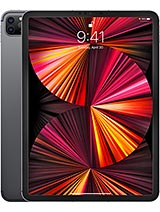
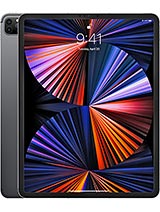
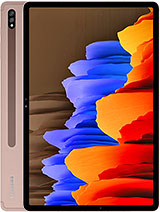
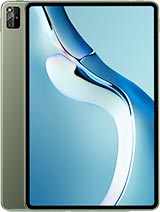
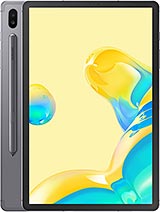
![Galaxy Z Fold3 - Release Date, Price, and Specs [YES]](https://img.youtube.com/vi/6lAGAKRmWpk/maxresdefault.jpg )






















